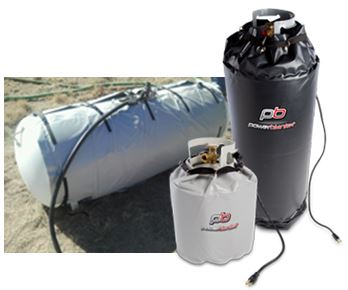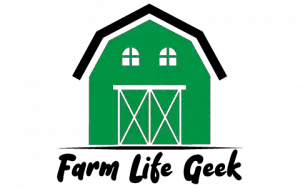Yes, heat can affect propane tanks. If a tank is exposed to direct sunlight or high temperatures, the pressure inside the tank can increase, which can cause the tank to leak or even explode. Always store propane tanks in a cool, dry place out of direct sunlight.
When it comes to propane tanks, heat can definitely be a factor. If the temperature outside is extremely hot, the pressure inside the tank can increase, which can cause problems. In extreme cases, the tank could even explode.
So if you’re using a propane tank in hot weather, it’s important to be aware of the potential risks and take precautions accordingly.
Will a Propane Tank Explode in Hot Weather
As the weather starts to heat up, many of us are firing up our grills and enjoying the outdoors. But did you know that your propane tank could be at risk in hot weather?
It’s true!
If a propane tank gets too hot, it can actually explode. So how do you keep your tank safe in the summer heat?
Here are a few tips:
– Don’t store your propane tank in direct sunlight. Keep it in a shady spot instead.
– If you’re using your grill regularly, check the level of propane often.
A full tank is less likely to overheat than one that’s running low.
– Never leave your grill unattended while it’s lit. Not only is this a fire hazard, but it also gives the tank time to heat up without anyone around to monitor it.
How Hot Can a Propane Tank Get before It Explodes
Most people are familiar with the smell of propane, which is often used for grilling. What many don’t know is that this gas can be extremely dangerous if not used properly. Propane tanks are under a lot of pressure, and if they get too hot, they can explode.
So how hot does a propane tank have to be before it explodes? The answer is: it depends. The temperature at which a propane tank will explode varies depending on the amount of propane in the tank and the size of the tank.
A small tank with a lot of propane will explode at a lower temperature than a large tank with less propane.
There are three things that can cause a propane tank to overheat and explode: direct sunlight, fires, and welding torches. If you’re using a propane grill or other appliance, make sure to keep your tank out of direct sunlight.
And if you see a fire near your grill or any otherpropane appliance, shut off the gas immediately and move away from the area. Finally, never use a welding torch on or near a propane tank – even an empty one – as this can easily cause an explosion.
If you follow these simple safety tips, you can enjoy grilling without worry!
Where to Store Propane Tank in Summer
As the weather gets warmer and summer approaches, many people start to think about grilling out and spending time outdoors. But if you use propane to power your grill, you may be wondering where the safest place to store your propane tank is during the warmer months.
The good news is that there are a few different options for storing your propane tank during the summer.
Here are a few of the most popular:
1. Store Your Propane Tank in a Cool, Dry Place
One of the best places to store your propane tank during summer is in a cool, dry place inside your home or garage.
This will help keep the temperature of the tank regulated and protect it from any moisture that could cause corrosion.
2. Invest in a Propane Tank Cover
If you’re going to be storing your propane tank outside, make sure you invest in a cover specifically designed for propane tanks.
These covers can help protect your tank from UV rays, wind, and rain damage.
3. Keep Your Propane Tank Full During Summer Storage
Summer is one of those seasons where we tend to use our grills less frequently than other times of year.
As such, it’s important to make sure you keep your propane tank full during storage so that it doesn’t run empty and become damaged as a result.
Is It Ok to Leave Propane Tank Outside in Summer
If you’re like most people, you enjoy grilling out during the summer months. But what many grillers don’t realize is that their propane tank could be in danger of exploding if it’s left out in the heat.
Most propane tanks are made of steel, which is a highly conductive material.
When the temperature outside rises, so does the temperature of the tank. If the temperature gets high enough, it can cause the pressure inside the tank to build up until it explodes.
There have been cases of propane tanks exploding after being left out in direct sunlight or near a heat source like a barbecue pit.
In one case, a man was killed and several others were injured when a BBQ grill exploded due to a propane leak. The moral of the story is to never leave your propane tank unattended in hot weather.
If you must leave your tank outside, make sure it’s in a shady spot where it won’t be exposed to direct sunlight or any other heat source.
And always check the pressure gauge before using your grill to ensure that the pressure isn’t too high. By taking these simple precautions, you can avoid disaster and keep your summer cookouts safe and enjoyable for everyone involved.

Credit: www.powerblanket.com
Are Propane Tanks Safe in Hot Weather?
Most people are aware that propane tanks should not be stored in hot weather, but many don’t know why. The reason is because when propane is exposed to high temperatures, it expands and can cause the tank to rupture. This can obviously lead to a very dangerous situation, so it’s important to take precautions if you’re going to be storing your propane tank in hot weather.
There are a few things you can do to make sure your propane tank stays safe in hot weather. First of all, you should never store your propane tank in direct sunlight. If possible, try to keep it in a shady area or indoors.
You should also avoid exposing the tank to any sources of heat, such as a barbecue or fire pit. Finally, make sure the valve on the tank is closed tightly so that no gas can escape.
If you follow these simple tips, you’ll ensure that your propane tank stays safe in hot weather conditions.
What Happens to Propane When It Gets Hot?
When propane is heated, it changes from a liquid to a gas. The molecules in the liquid move faster as they are heated and eventually they become so hot that they turn into a gas. The molecules in a gas are much farther apart than in a liquid and can move around more easily.
Does Outside Temp Affect Propane Tank?
As the temperature outside decreases, the pressure inside a propane tank increases. This is because propane is a gas, and like all gases, its molecules move faster when heated and slower when cooled. The increased pressure can cause the tank to leak or even burst.
What Temperature Can a Propane Tank Withstand?
Propane is a highly flammable gas, which means that it can catch fire very easily. Because of this, propane tanks must be made out of materials that can withstand high temperatures without catching fire themselves. The most common material used for propane tanks is steel.
Steel has a very high melting point, meaning that it can withstand extremely high temperatures before beginning to melt. This makes it an ideal material for storing propane, as the risk of the tankcatching fire is very low.
However, even steel has its limits.
If a propane tank is exposed to enough heat, eventually the metal will begin to soften and deform. At this point, the tank is no longer safe to use and must be replaced. While there is no definitive answer as to how much heat a propane tank can take before failing, it is generally agreed that exposure to temperatures above 500 degrees Fahrenheit will cause serious damage to the tank.
Conclusion
Most people think that propane tanks are affected by heat, but this is not the case. Propane tanks are actually designed to withstand high temperatures, so they are not affected by the sun or other sources of heat. However, if a propane tank is exposed to flames, it can explode.
